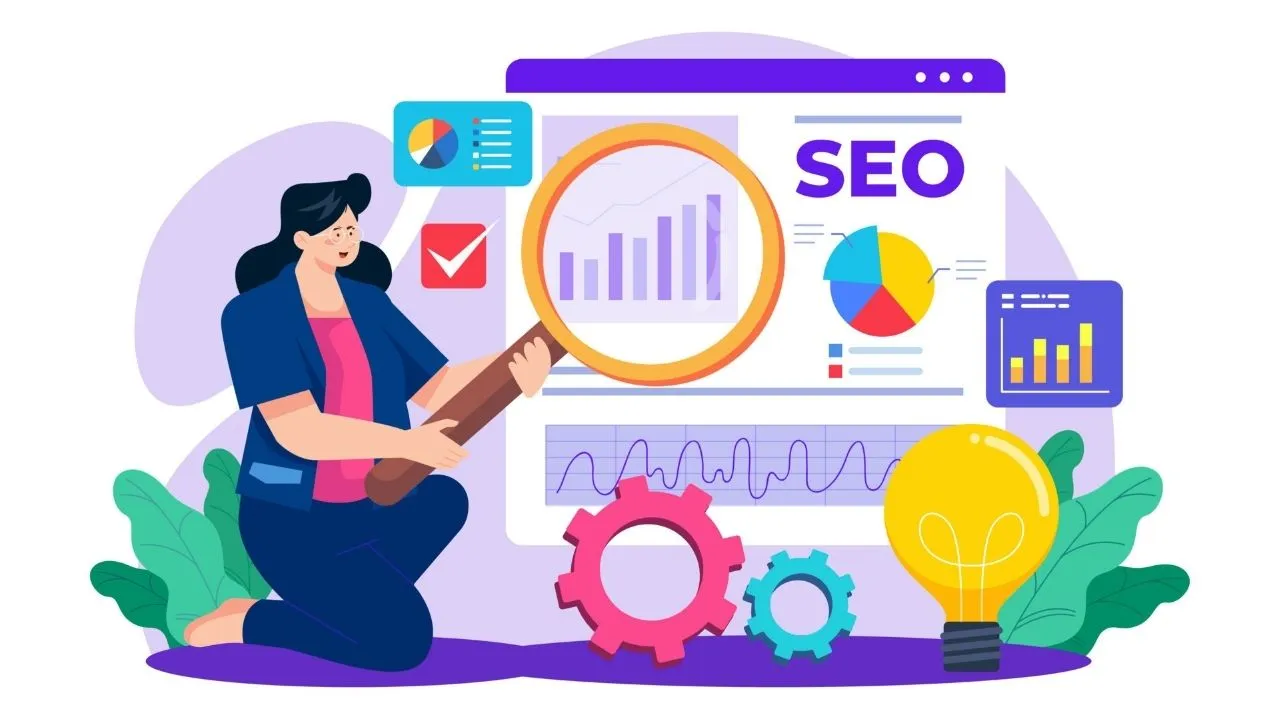
Table of Contents
In today’s digital age, having a strong online presence is essential for any business looking to succeed. Search Engine Optimization (SEO) is a crucial component of this online presence, helping websites rank higher on search engine results pages (SERPs) and attract more organic traffic.
But what exactly is SEO, and how does it work? In this comprehensive guide, we will explore the fundamentals of SEO, its importance, and how you can implement effective SEO strategies to enhance your website's visibility and drive more traffic.
What is SEO?
SEO stands for Search Engine Optimization. It is the process of optimizing your website to improve its visibility and ranking on search engines like Google, Bing, and Yahoo. SEO involves a combination of on-page and off-page strategies designed to make your website more attractive to search engines and users.
How Does SEO Work?
1. Keyword Research:
- Identifying the keywords and phrases that potential customers use to search for products or services related to your business. Tools like Google Keyword Planner, SEMrush, and Ahrefs can help you find relevant keywords with high search volume and low competition.
2. On-Page SEO:
- This involves optimizing the content and HTML source code of your website. Key elements of on-page SEO include:
- Title Tags: Crafting compelling and keyword-rich titles for your web pages.
- Meta Descriptions: Writing concise and informative descriptions that summarize the content of your pages.
- Headings: Using header tags (H1, H2, H3) to structure your content and highlight important points.
- URL Structure: Creating clean, descriptive URLs that include relevant keywords.
- Internal Linking: Linking to other pages on your website to improve navigation and distribute link equity.
- Content Optimization: Ensuring your content is valuable, relevant, and optimized for targeted keywords.
3. Off-Page SEO:
- This involves activities outside of your website that can impact your rankings. Key elements of off-page SEO include:
- Backlinks: Acquiring high-quality links from other reputable websites. Backlinks act as votes of confidence for your site’s authority and relevance.
- Social Media Engagement: Promoting your content on social media platforms to increase visibility and drive traffic.
- Guest Blogging: Writing articles for other websites in your industry to build backlinks and establish authority.
4. Technical SEO:
- This involves optimizing the technical aspects of your website to ensure it is easily crawled and indexed by search engines. Key elements of technical SEO include:
- Site Speed: Ensuring your website loads quickly for a better user experience.
- Mobile-Friendliness: Making sure your site is responsive and works well on all devices.
- XML Sitemaps: Creating and submitting sitemaps to search engines to help them discover your pages.
- Robots.txt: Using robots.txt files to guide search engine crawlers and control which pages are indexed.
5. Local SEO:
- Optimizing your online presence to attract more business from relevant local searches. Key elements of local SEO include:
- Google My Business: Claiming and optimizing your Google My Business listing.
- Local Citations: Ensuring your business information is consistent across online directories.
- Reviews and Ratings: Encouraging satisfied customers to leave positive reviews on platforms like Google and Yelp.
Why SEO is Important & Benefits of SEO
1. Increased Organic Traffic:
- By ranking higher on search engine results pages, your website can attract more organic (non-paid) traffic from users searching for relevant keywords.
2. Cost-Effective Marketing:
- Unlike paid advertising, SEO focuses on earning organic traffic, which can lead to long-term results and a higher return on investment (ROI).
3. Enhanced User Experience:
- SEO involves optimizing your website’s content, structure, and performance, which can improve the overall user experience and increase engagement.
4. Brand Credibility and Authority:
- High rankings on search engines signal to users that your website is trustworthy and authoritative, boosting your brand’s credibility.
5. Competitive Advantage:
- A well-executed SEO strategy can help you outperform competitors and establish your business as a leader in your industry.
Conclusion
SEO is a powerful tool that can significantly impact your online visibility, traffic, and overall business success. By understanding and implementing effective SEO strategies, you can enhance your website’s performance, attract more potential customers, and achieve your marketing goals.
Whether you’re a small business or a large enterprise, investing in SEO is essential for staying competitive in the digital landscape.
Elevate Your Online Presence with Expert SEO Services!
Ready to boost your website’s visibility and drive more organic traffic? At Softhat IT Solutions, we specialize in delivering comprehensive SEO services tailored to your business needs.
Contact us today to learn how our SEO experts can help you achieve higher rankings and sustainable growth. Reach out to us to schedule a consultation and start optimizing your online presence!
